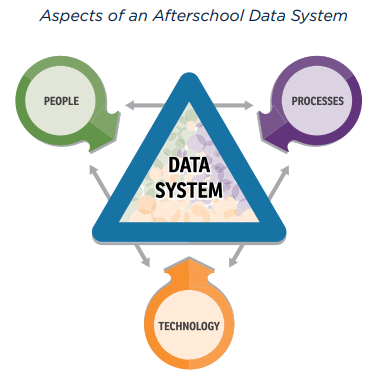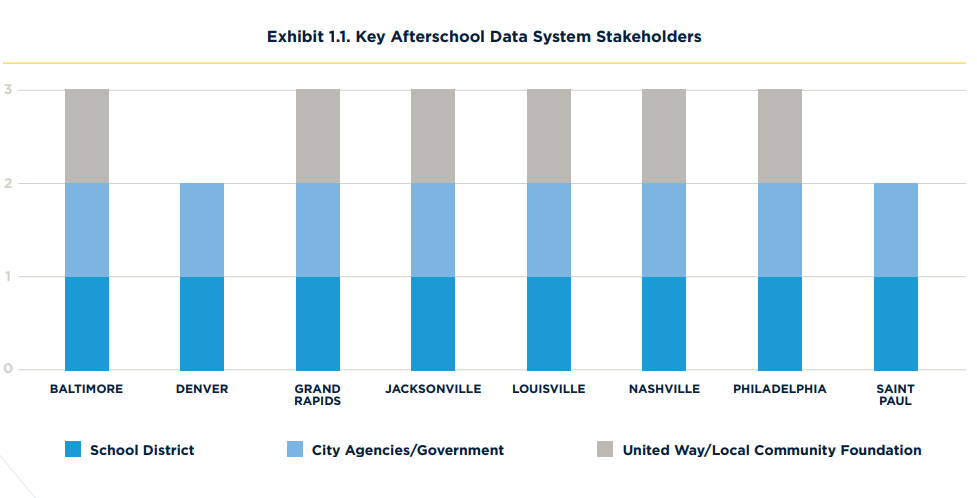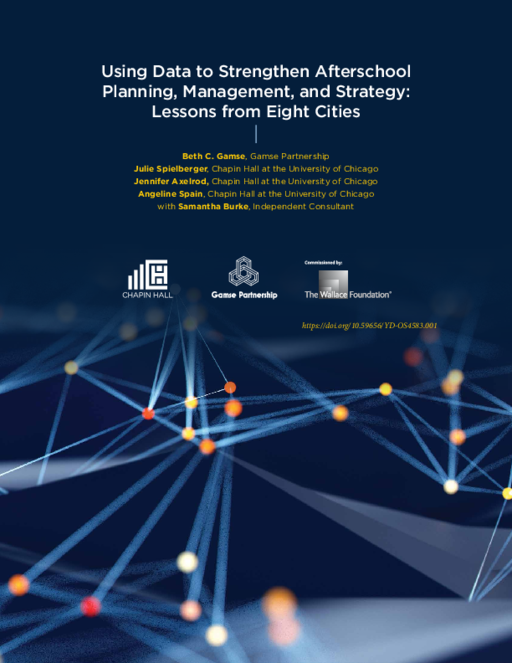Breadcrumb
- Wallace
- Reports
- Using Data To Strengthen Aftersc...
Using Data to Strengthen Afterschool Planning, Management, and Strategy
Lessons from Eight Cities

- Author(s)
- Beth C. Gamse, Julie Spielberger, Jennifer Axelrod, Angeline Spain, and Samantha Burke
- Publisher(s)
- Chapin Hall at the University of Chicago and Gamse Partnership
Summary
How we did this
The two reports in this series stem from a Wallace Foundation initiative to support cities in developing out-of-school-time systems. The Information for the reports was drawn from an analysis of city documents, site visits, and interviews with key stakeholders, observations of selected trainings and meetings related to data use, and attendance at three, cross-city grantee meetings in fall 2013, spring 2014, and fall 2014.
Afterschool programs can offer enriching opportunities, homework help, and a safe environment for children. To ensure that these programs are cohesive, high-quality, and widely available, many cities have designed communitywide systems to coordinate the various afterschool programs offered by different providers.
Having a way to collect and share reliable data through these systems can help cities inform and strengthen their efforts.
Citywide Efforts
This report shares lessons learned from The Wallace Foundation’s Next Generation Afterschool System-Building Initiative, a multiyear effort to strengthen systems that support access to and quality of afterschool programs for low-income youth. The researchers followed eight cities for the entire effort, from 2012 through 2016.
The cities were:
- Baltimore
- Denver
- Grand Rapids, Mich.
- Jacksonville, Fla.
- Louisville
- Nashville
- Philadelphia
- Saint Paul.
Establishing Data Systems
By the end of the initiative, the eight cities had established data systems by building working coalitions across the public, philanthropic, and nonprofit sectors.
Interim findings, summarized in an earlier report, highlighted the importance of three central pillars to developing capacity to collect and use data systems: investments in people, processes, and technology.
Operating large-scale data systems required continued attention to these three central pillars. The eight cities made notable progress in how they used data in meaningful ways. All expanded how data were used across the system. They engaged providers more systematically and purposefully in using data, including for accountability, improvement, strategic planning, and program management.
The report offers insights including:
- Bring a systems-level focus. This includes having shared goals, staying focused on outcomes, and understanding how work and contributions are distributed.
- Collaboratively agree on meaningful indicators that signal progress and can generate recognition.
- Understand local circumstances, contexts, and expertise—and that expertise resides at multiple levels of a system.
Key Takeaways
- Eight cities in a large-scale afterschool effort were able to strengthen their use of data at the system level in order to coordinate and provide afterschool programming more effectively.
- Establishing and operating complex data systems required continued attention to three key foundational pillars:
- ensuring that the technology was in place and continued to function
- investing in human capital kept pace with system needs
- creating policies and practices that supported—and helped to routinize—data use.
- Lessons learned include recognizing the need for systems-level data, understanding local context, collaborating with all stakeholders, and recognizing that not everything will proceed as planned.

Having really solid high-quality data on a few useful components is better than having mediocre-quality data for a lot more things.
— Philadelphia stakeholder
Visualizations



